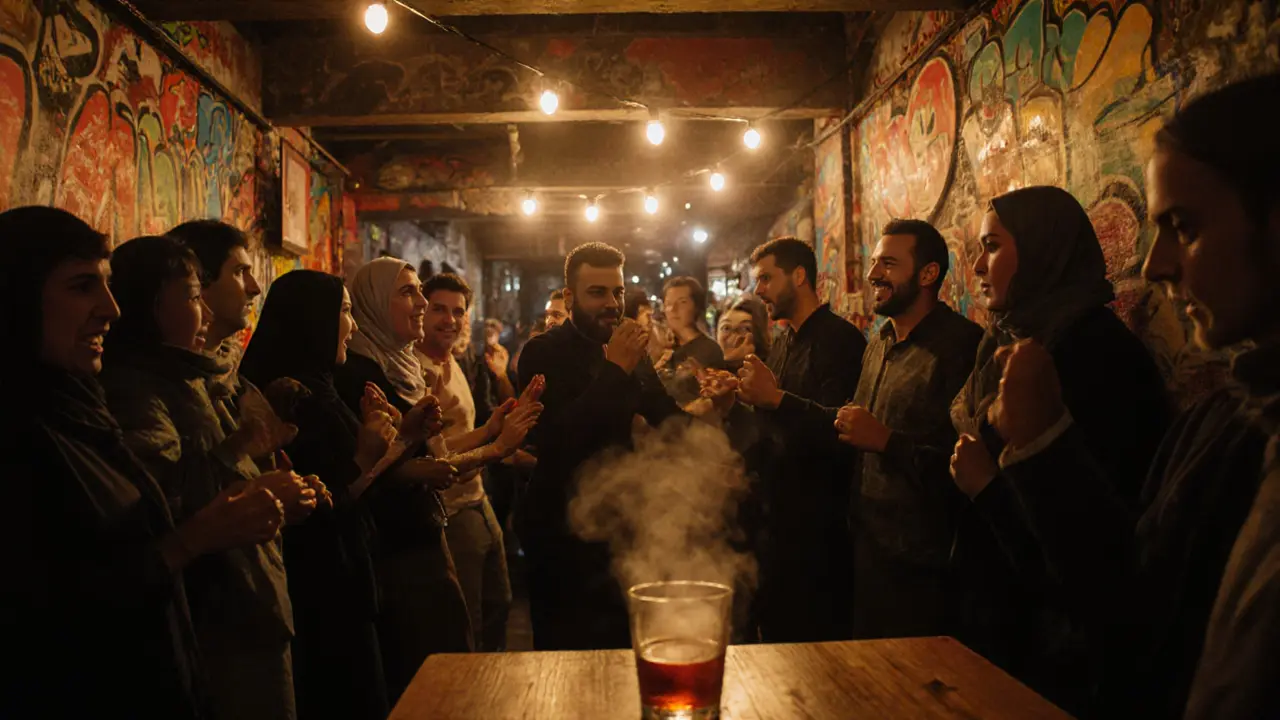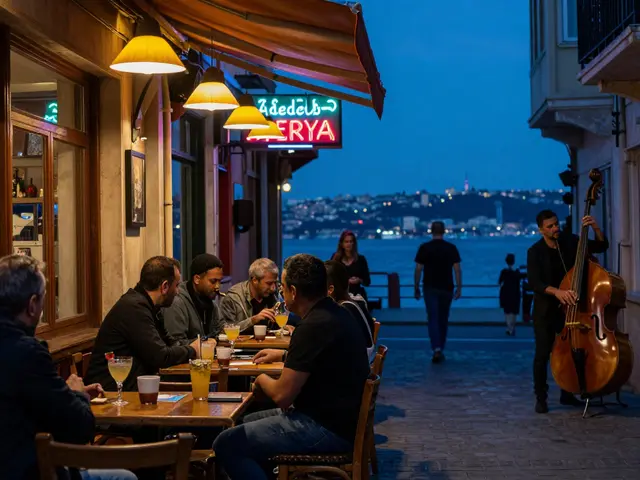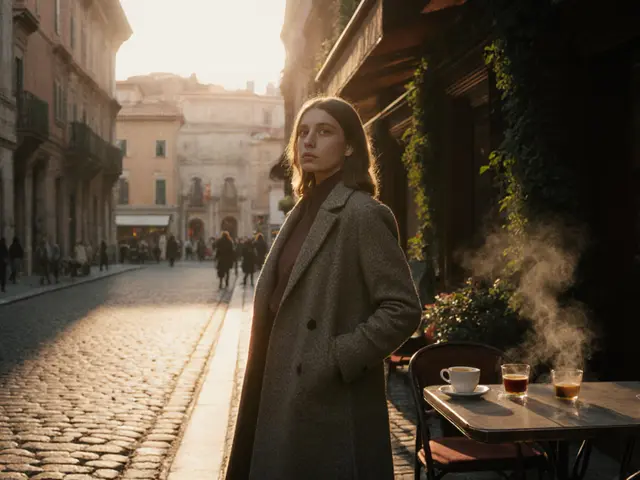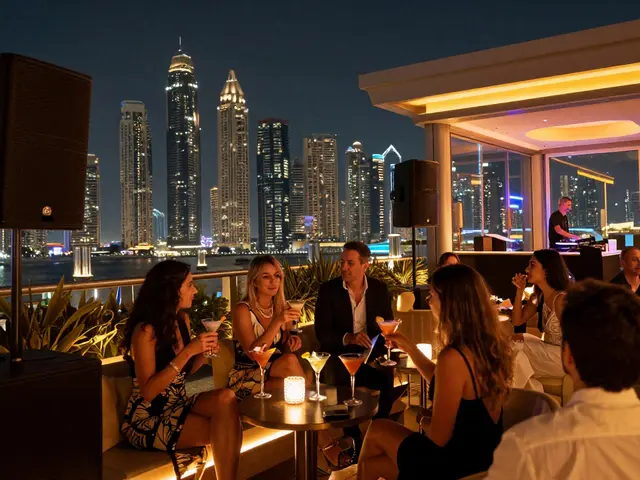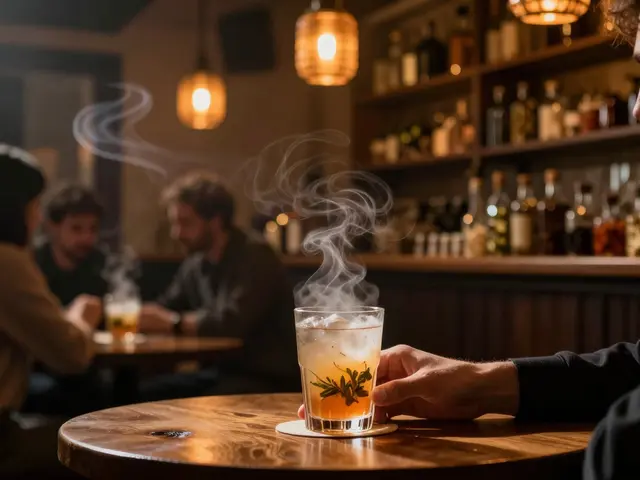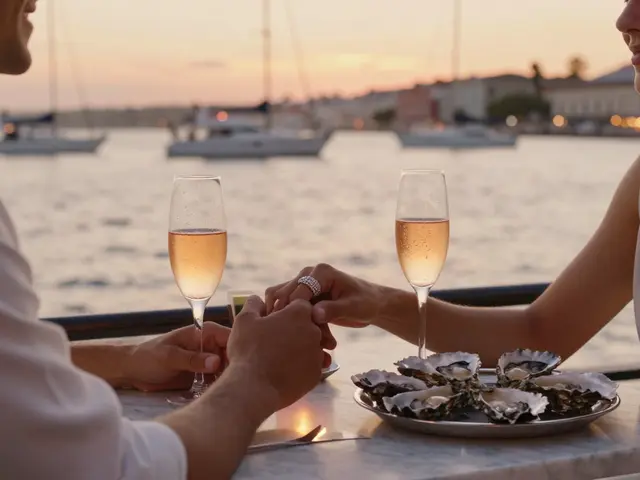Istanbul's Nightlife: A Celebration of Diversity and Inclusivity
When the sun sets over the Bosphorus, Istanbul doesn’t sleep-it transforms. From the dimly lit cocktail lounges of Beyoğlu to the underground beats of Kadıköy, the city’s nightlife isn’t just about drinking or dancing. It’s a living, breathing expression of who Istanbul really is: a place where cultures collide, identities overlap, and everyone finds a corner to call their own.
More Than Just Bars and Clubs
Forget the old stereotype of Istanbul as a conservative city that shuts down after dark. That version of Istanbul hasn’t been true for years. Today, the city’s nightlife is shaped by a quiet but powerful revolution-one led by artists, refugees, expats, queer communities, and young locals who refuse to be boxed in.
On any given Friday night, you can start at Bar 1908 in Nişantaşı, sipping a craft gin while listening to jazz played by a Turkish pianist who studied in New York. By midnight, you’re in a hidden basement club in Cihangir where a Syrian DJ mixes Arabic oud samples with techno beats. By 3 a.m., you’re dancing in a rooftop lounge in Karaköy, surrounded by Turkish women in headscarves, gay couples holding hands, and a group of Ukrainian refugees laughing over shared plates of manti.
This isn’t curated for tourists. It’s organic. It’s messy. It’s real.
Where Inclusivity Isn’t a Marketing Hook
Many cities claim to be inclusive. Istanbul actually lives it.
Take Mezze Bar in Beyoğlu. Opened in 2019 by a transgender woman who fled persecution in eastern Turkey, it’s one of the few safe spaces in the city where LGBTQ+ people can gather without fear. The walls are covered in graffiti from local artists, the playlist switches from Kurdish folk songs to Turkish pop to house music, and the staff remembers your name-even if you’re there for the first time.
Or consider Karaköy Lokantası, a late-night eatery that turns into a queer dance party after 1 a.m. No bouncers check IDs. No one asks if you’re ‘really’ gay or ‘just experimenting.’ You’re just another person who wants to eat baklava and move to a beat. This isn’t activism-it’s just how things work here now.
A 2024 survey by Istanbul’s Cultural Diversity Initiative found that 78% of nightlife visitors under 35 say they feel more accepted in Istanbul’s after-dark scene than in their hometowns. That’s not accidental. It’s the result of years of quiet resistance, community building, and small businesses choosing inclusion over profit.
The Soundtrack of a City That Doesn’t Look Back
Music is the heartbeat of Istanbul’s nightlife-and it’s never been louder or more diverse.
In the past, you’d hear only Turkish pop or Arabic classics in clubs. Now? You’ll find:
- A Kurdish folk band remixing duduk melodies with drum and bass at Soundwave Basement in Kadıköy
- A Russian expat playing vinyl-only disco nights at Blue Note Istanbul
- A group of Armenian musicians blending traditional ashik poetry with electronic loops at Armenian Jazz Club in Tophane
- A Palestinian DJ spinning Palestinian rap over Turkish bağlama samples at Al-Farabi, a venue run by refugees
These aren’t niche acts trying to stand out. They’re the new normal. The city’s youth don’t care about borders in music. They care about feeling something. And Istanbul’s venues have learned to listen.
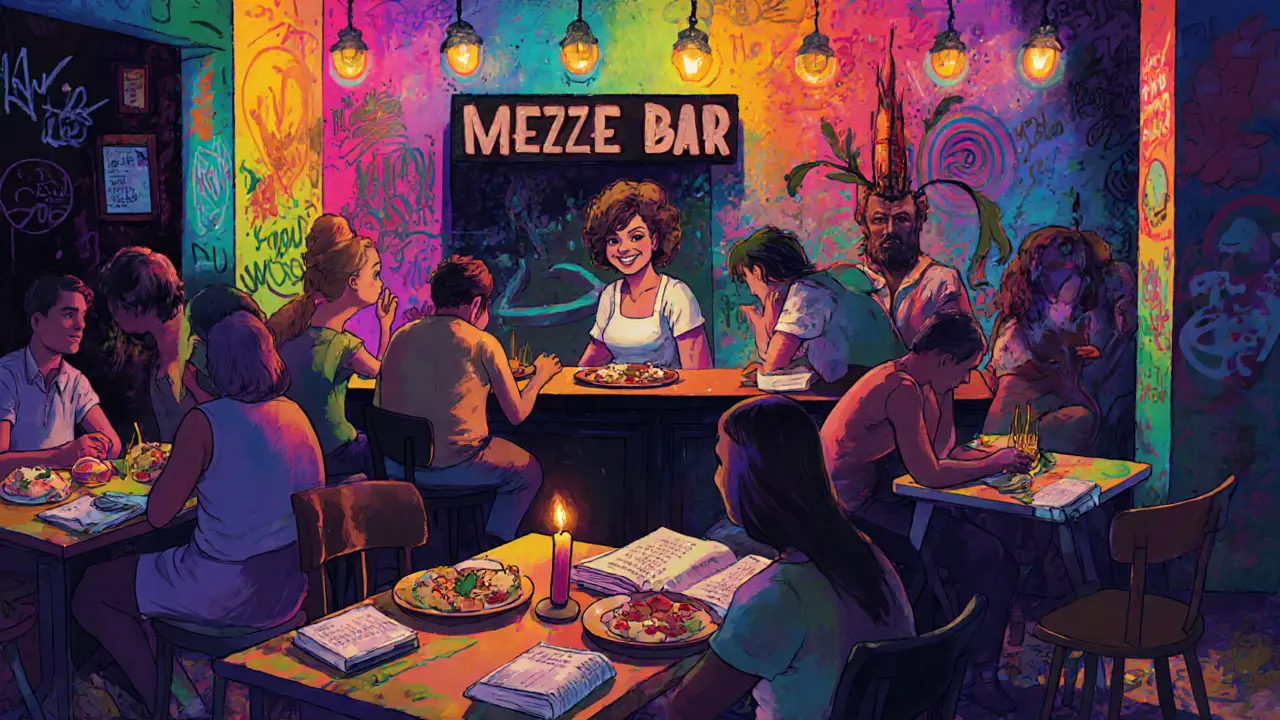
How It All Started: The Quiet Rebellion
This shift didn’t happen overnight. It began in the early 2010s, when a handful of young entrepreneurs-many of them women, LGBTQ+, or from minority backgrounds-opened small spaces that defied the city’s strict liquor laws and social norms.
One of the first was Bar 1908, which opened in 2013 as a wine bar with no music, no dancing, just books and conversation. It was banned twice for serving alcohol without a ‘proper’ license. Instead of closing, the owners turned it into a members-only space. Today, it’s one of the most sought-after spots in the city-with a waiting list longer than a popular nightclub’s.
Other spaces followed. La Maison, a lesbian-run café-bar in Nişantaşı, started as a book club. Now it hosts monthly poetry nights for queer refugees. Yeni Kafe, in Balat, began as a community kitchen for Syrian families and now runs a weekly drag brunch that draws crowds from all over Europe.
The city didn’t change because of laws. It changed because people kept showing up-with their friends, their music, their food, their stories.
What You Won’t Find (And Why That Matters)
You won’t find chain nightclubs here. No Hard Rock Cafés. No VIP bottle service with $200 minimums. No security guards checking your bag for ‘suspicious’ items.
You won’t find places that cater only to foreigners. The best spots are often filled with locals-Turkish students, retired fishermen from the Black Sea, Kurdish grandmothers who come to sip tea until 2 a.m., and trans women who’ve found their first real community here.
You won’t find a single ‘Istanbul nightlife’ guide that tells you where to go. That’s intentional. The magic of this scene is in discovery. Ask someone who’s been here for a while. Follow the music. Look for the lights that aren’t neon. The places that matter don’t advertise.
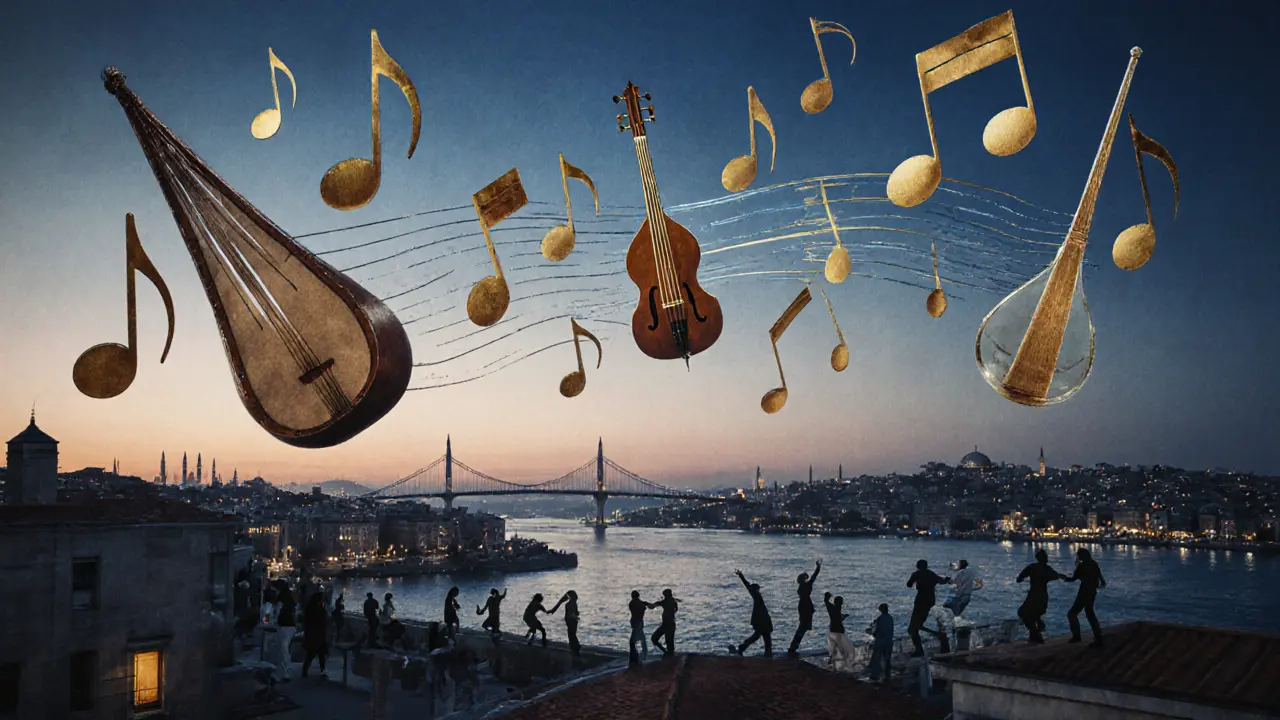
How to Experience It-Without Exploiting It
If you’re visiting, here’s how to be part of this world without becoming part of the problem:
- Don’t treat it like a theme park. Don’t take photos of people dancing unless you’re asked. Don’t call it ‘exotic.’
- Support local, not international chains. Skip the big hotel bars. Go to the places owned by people who live here.
- Pay what’s fair. Many small venues operate on thin margins. A $10 cocktail might cost the owner $8 to make. Tip if you can.
- Listen more than you speak. You’re a guest in someone else’s home. Let them lead the conversation.
- Leave your assumptions at the door. You might see a woman in a hijab dancing with a man in a leather jacket. That’s not odd here. It’s ordinary.
The goal isn’t to ‘experience diversity.’ It’s to sit quietly beside it, and let it change you.
Where to Go Next
Here are five spots that embody what Istanbul’s nightlife has become:
- Mezze Bar - Beyoğlu. The heart of queer Istanbul. Open until 4 a.m., no cover, no rules.
- Soundwave Basement - Kadıköy. Underground electronic nights with a focus on non-Western sounds.
- Yeni Kafe - Balat. Drag brunch every Sunday. Free food for refugees on Tuesdays.
- Bar 1908 - Nişantaşı. Quiet, literary, and deeply human. Bring a book. Stay for the conversation.
- Al-Farabi - Şişli. Refugee-run venue. Free entry. All proceeds go to migrant support groups.
There are dozens more. The best ones change every season. Ask around. Follow the music. Let yourself get lost.
Why This Matters Beyond Istanbul
Istanbul’s nightlife isn’t just a party. It’s a blueprint.
In a world where cities are becoming more segregated, more commercialized, more afraid of difference, Istanbul is doing the opposite. It’s saying: You don’t need permission to belong. You don’t need to be perfect. You just need to show up.
And if you do, the city will welcome you-not with banners or slogans, but with a glass of raki, a shared table, and a beat that doesn’t care where you’re from.
Is Istanbul’s nightlife safe for LGBTQ+ travelers?
Yes, but not everywhere. Istanbul’s most vibrant nightlife spots-especially in Beyoğlu, Kadıköy, and Cihangir-are among the safest in the region for LGBTQ+ people. Many venues are run by queer locals and have zero tolerance for discrimination. However, avoid areas near religious sites or conservative neighborhoods at night. Stick to well-known, community-run spaces. If you’re unsure, ask a local or check recent reviews on LGBTQ+ travel forums.
What’s the best time to experience Istanbul’s nightlife?
Weekends are the most alive, especially Friday and Saturday. Most places don’t really get going until after 11 p.m. and stay open until 4 or 5 a.m. If you want a quieter, more authentic experience, try Wednesday or Thursday nights. That’s when locals go out without the tourist crowds, and the music tends to be more experimental.
Do I need to speak Turkish to enjoy Istanbul’s nightlife?
No. English is widely spoken in nightlife districts, especially among younger staff and venue owners. But learning a few phrases-like ‘Teşekkür ederim’ (thank you) or ‘Bir şey değil’ (it’s nothing)-goes a long way. Many of the best spots are small and personal. A little effort shows respect, and people notice.
Are there any dress codes in Istanbul’s clubs?
Most places have no dress code. You’ll see everything from jeans and sneakers to high heels and formal wear. The only exception is upscale rooftop lounges in Nişantaşı or Bebek, where smart casual is expected. But even there, no one checks. Just avoid wearing beachwear or flip-flops unless you’re at a beachside bar. Comfort matters more than style.
Can I bring a group of friends to these venues?
Absolutely. But keep groups small-no more than six people. Many venues are intimate and don’t have large spaces. Big groups can overwhelm the atmosphere and make others feel uncomfortable. If you’re coming with a large group, call ahead. Most places will happily accommodate you if you’re respectful.
